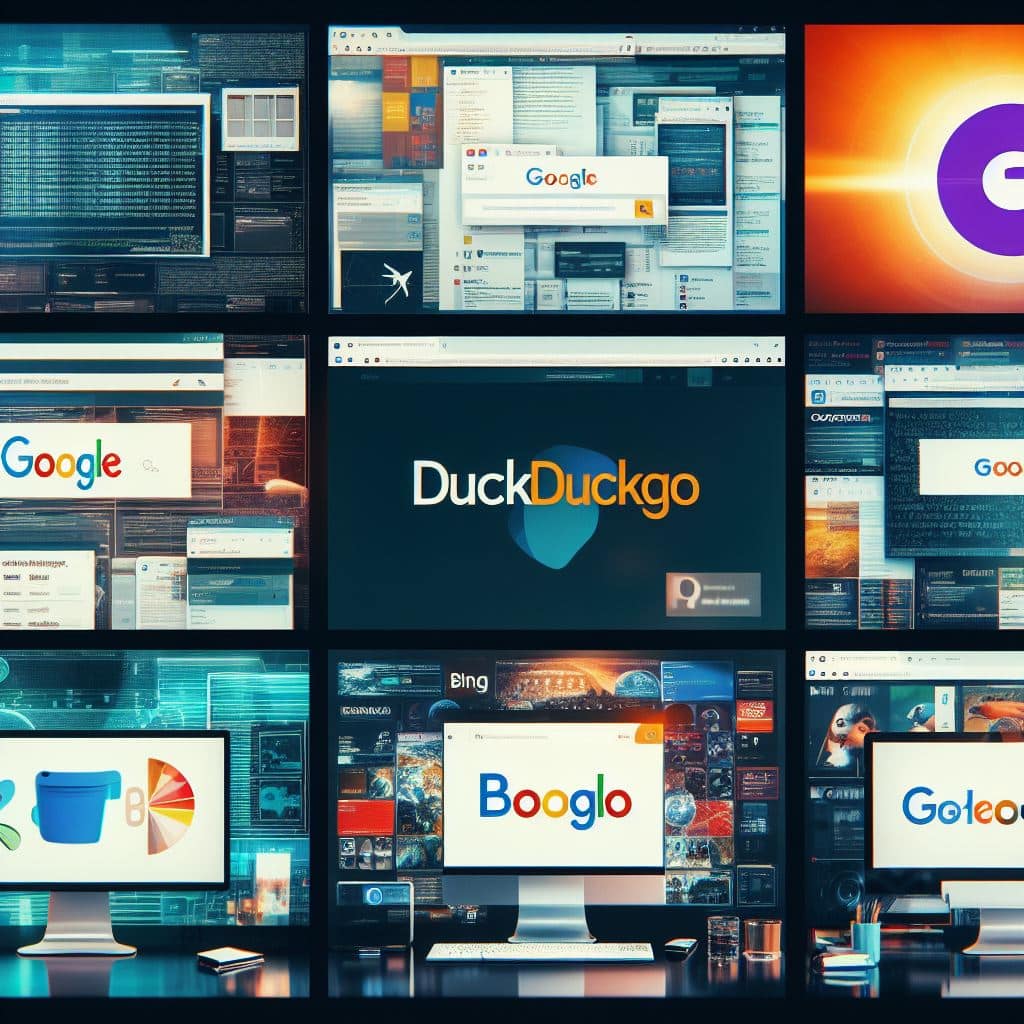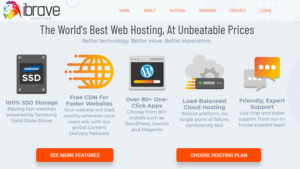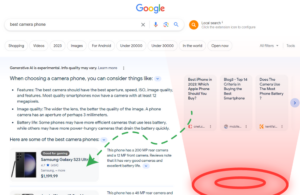Information overload? Want a Google alternative? Welcome. In today’s digital age, we’re often inundated with information from all directions. We rely heavily on search engines to filter and deliver the most relevant content to us.
While Google stands tall as the go-to option for many, diversifying the search platforms we use can be beneficial. The beauty of the digital world is the choice it provides. With an array of search engines available, users can access different types of information, enjoy varied search experiences, and sometimes even better results. Let’s delve into why looking beyond Google is a smart move and the distinct categories of search engines available to users.
Why Consider Alternatives to Google?
Google, with its impressive algorithms and vast index of websites, does a fantastic job. However, as we all know, one size doesn’t fit all. There are instances where niche or specialized search platforms might offer better-tailored results. For example, specialized search engines can be more efficient if you’re hunting for academic articles or specific forum discussions. Yet you probably should keep an eye on the helpful content updates from Google.
While Google’s data collection policies are comprehensive, some users might be looking for platforms with stricter privacy guidelines. In other cases, individuals might simply want a different user experience—be it in terms of search algorithms, user interface, or the ethical principles of a company (like a platform that plants trees for every search).

Mainstream Search Engines Beyond Google
#1 Bing: Microsoft’s Bold Move in the Search Game
Microsoft’s Bing is not just another name in the world of search engines; it’s a formidable competitor that has consistently evolved to challenge the dominance of search giants. While many of us are inclined towards Google due to familiarity, Bing has been making strides in both technology and user experience.
A stand-out feature Bing brings to the table is its rewards program. By simply searching, users can rack up points that become valuable in the Microsoft ecosystem. It’s not just about rewards; it’s a testament to Microsoft’s commitment to appreciating user loyalty.
Also, Bing’s prowess shines brightly when it comes to visual search API. It boasts an intuitive design that’s focused on user needs and simplicity. Shifting to videos, Bing provides a fresh perspective by offering diverse video content without the pervasive influence of YouTube. The recent announcement about infusing AI into Bing’s search and Edge browser further underscores Microsoft’s ambition to push boundaries and offer something revolutionary. With Satya Nadella at the helm, emphasizing the vast potential in untapped search queries, the future seems promising for Bing enthusiasts.
There is one problem though: Bing cannot be trusted with Pay Per Click – because the make it impossible to set bids per click with their “smart” campaigns and are nudging the user the the point of giving them total control and losing control of your budget as a user. Pay per click should give you the ability to CHOOSE the keywords you want to bid on – and specify your bid by keyword: and Bing Ads is making this impossible, so buyer beware.
#2 Yahoo: A Pioneering Force in the Digital Age
Yahoo is not just a name; it’s a legacy in the digital domain. Holding an impressive 11.2% search market share, Yahoo isn’t merely about search. It’s a multifunctional platform, encapsulating services that range from emails and finance to news. Its enduring presence speaks volumes about its adaptability and commitment to evolving based on user needs. The longevity of Yahoo is a testament to its knack for innovation and staying relevant even in today’s ever-evolving digital era.
#3 Baidu: The Search Titan of China
When we talk about search engines and China, Baidu invariably takes center stage. Holding sway over 65% of China’s search market share, Baidu has established itself as a reliable and user-friendly platform for millions. It’s not confined to just search; Baidu, like its global counterparts, offers a slew of services, whether it’s maps, music, or its app store, giving it a comprehensive digital footprint. Additionally, with tools like a dedicated mobile browser and app, Baidu ensures its presence across platforms, bridging the gap between desktop and mobile users.
#4 Yandex: Russia’s Go-To Digital Companion
Yandex, often fondly called the Google of Russia, is an essential part of the digital lives of many in Russia and neighboring countries. It’s not just its impressive usage stats that stand out; it’s the user-friendly experience it offers. Yandex understands its audience and has tailored its services to meet the unique needs and preferences of its diverse user base. Beyond just search, Yandex provides a suite of tools that enhance productivity, entertainment, and general digital experience, solidifying its position as a digital powerhouse in its region.
Potential of Browser-Based Search Engines
#5 DuckDuckGo: Where Privacy Meets Performance
With personal data being a prized commodity, DuckDuckGo is a refreshing alternative for those who prioritize privacy. As a hybrid engine, DuckDuckGo merges the power of various search sources to provide comprehensive results, ensuring users don’t compromise on the quality of search results while maintaining their privacy. Unlike many other search engines that record user data to curate advertisements or enhance algorithms, DuckDuckGo adopts a clear-cut stance: no tracking means no personal data storage. For businesses and marketers, this translates to an audience that genuinely values privacy, presenting a unique segment to cater to.
#6 StartPage: A Familiar Feel Without the Eyes Following You
For those of you who love the efficiency of Google’s search results but are wary of its data collection practices, StartPage emerges as the golden middle path. At its core, StartPage acts as a privacy-focused gateway to Google. Users get the familiar, robust search results they’ve grown accustomed to from Google, but with a significant twist: absolute zero tracking. So, if you’re a marketer wondering about the dynamics of SEO on StartPage, it’s akin to optimizing for Google. The main difference lies in the user intent; StartPage users are more privacy-conscious, meaning content that respects and caters to this ethos might resonate better.
#7 Ecosia: A Green Search for the Eco-Conscious
Ecosia shines brightly among browser-based search engines with its unique blend of digital proficiency and eco-consciousness. Every search on Ecosia has an environmental impact, and here’s how: A portion of the ad revenue generated from searches goes directly to planting trees around the globe. As climate change concerns grow and consumers become increasingly conscious of their digital carbon footprint, platforms like Ecosia offer a sustainable way to browse.
Ecosia presents a unique challenge and opportunity for digital marketers and SEO experts. Aligning content and campaigns with eco-friendly themes or messages can strike a chord with Ecosia’s environmentally-conscious user base. Crafting content that’s both informative and eco-positive can set businesses apart in this green digital space.
Harnessing the Power of Specialized Search Engines
#8 Discovering Reusable Content with Creative Commons Search
In the world of digital content, creators often find themselves in need of media that won’t get them into copyright trouble. Enter Creative Commons Search. This tool offers a portal to discover content, from images to music tracks, which creators have willingly shared for reuse. For digital marketers, this translates into a treasure trove of resources to enhance their content without fretting over copyright issues.
#9 Pixabay: Elevating Digital Presence with Striking Visuals
A picture speaks a thousand words, and with Pixabay, it does so without costing a penny. Offering a vast collection of high-resolution photos free from copyright restrictions, it’s a boon for bloggers, designers, and businesses. Leveraging such platforms ensures your digital content stands out, making your brand memorable.
#10 Wolfram Alpha: Knowledge at the Speed of Thought
Curiosity has a new best friend. Wolfram Alpha isn’t just another search engine—it’s a computational knowledge engine. Instead of returning content pages, it computes answers from expertly curated data. From math equations to historical facts, it provides precise answers in record time, making it indispensable for students, researchers, and the perpetually curious.
#11 Base: Knowledge, Credible and Consolidated
In an era with a high risk of misinformation, Base’s USP is credibility. By drawing data from a variety of trusted sources, it delivers well-rounded insights on a myriad of topics. For content creators, this means having a trusted partner to fact-check or enhance the depth of their articles.
#12 Social Mention: The Pulse of the Digital Crowd
Understanding what the online world is buzzing about has never been easier. Social Mention provides real-time insights into conversations across various social platforms. Brands and marketers can gauge sentiments, track mentions, and stay abreast of trending topics, ensuring they’re always in sync with their audience’s interests.
#13 Boardreader: Unearthing User Sentiments from Forums
Forums and message boards are often overlooked, yet they’re goldmines of user insights. Boardreader lets you tap into these discussions, offering a peek into genuine user sentiments, concerns, and feedback. For businesses, this tool is invaluable in understanding customer pain points, preferences, and potential areas of innovation.
#14 GIPHY: Because Sometimes, Only a GIF Will Do
In today’s digital conversations, GIFs are more than just fun—they’re a language of their own. GIPHY is the go-to platform to find that perfect GIF to express emotions, reactions, or to simply bring a smile. Brands can harness this platform to make their digital interactions more engaging and relatable.
#15 ScienceDirect: Where Curiosity Meets Scientific Rigor
ScienceDirect is the trusted companion for those searching for in-depth scientific research. Housing a vast collection of articles, journals, and publications, it’s the bridge between questions and authoritative answers in the scientific community.
#16 Wayback Machine: A Time Capsule of the Digital Age
Ever wished to revisit a website from years ago or track the evolution of digital content? Wayback Machine makes it possible. By archiving web pages from the past, it provides a nostalgic journey through the internet’s history, aiding researchers, marketers, and the curious minds in retracing the digital steps of yesteryears.
Tailoring Your Search to Your Needs
Here’s the deal: You wouldn’t wear the same pair of shoes to a dance party, a hiking trip, and a business meeting. Similarly, why restrict yourself to one search engine for all your diverse online needs? If you’re seeking scientific articles, ScienceDirect might be your go-to. If privacy is your concern, Qwant or DuckDuckGo could be your allies.
It’s all about recognizing that our online requirements are varied. And just like in the real world, different tools serve different purposes online. It’s time we shake off the one-size-fits-all approach to searching and align our tools with our goals.
Finally, yes, Linkedin is the B2B search engine of choice when it comes to finding people, whereas Amazon, Target and Walmart are used for shopping search. This space is dynamic, others to watch include a high number of paricipants from China, and no doubt Facebook and Tik-Tok as they seek to break into the market. Did I mention Twitter / X? That can certainly be added too.








